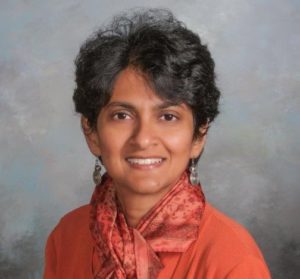
Professor of Political Science and International Affairs Surupa Gupta
On the occasion of the 75th anniversary of the birth of India and Pakistan, The Conversation invited Surupa Gupta, Professor of Political Science and International Affairs, to write a column comparing the legacy of British colonialism and the economic performance of India and Pakistan in the post-1947 period. While Pakistan’s growth rates outstripped India’s till the 1980s, Gupta argues that the script was flipped after 1991 when India undertook liberal reforms. India’s democratic system put pressure on its politicians to deliver higher growth. Even though Pakistan adopted some of the same economic policies, frequent changes in its government and its political system, coupled with its military spending, contributed to a lower growth rate and frequent economic crises.
Read the article, titled “India’s economy has outpaced Pakistan’s handily since Partition in 1947 – politics explains why,'” in the Times Union, The Herald Press, Peru Tribune, Chronicle Tribune, The Times, Asia Times, Yahoo News, SheThePeople and more.

